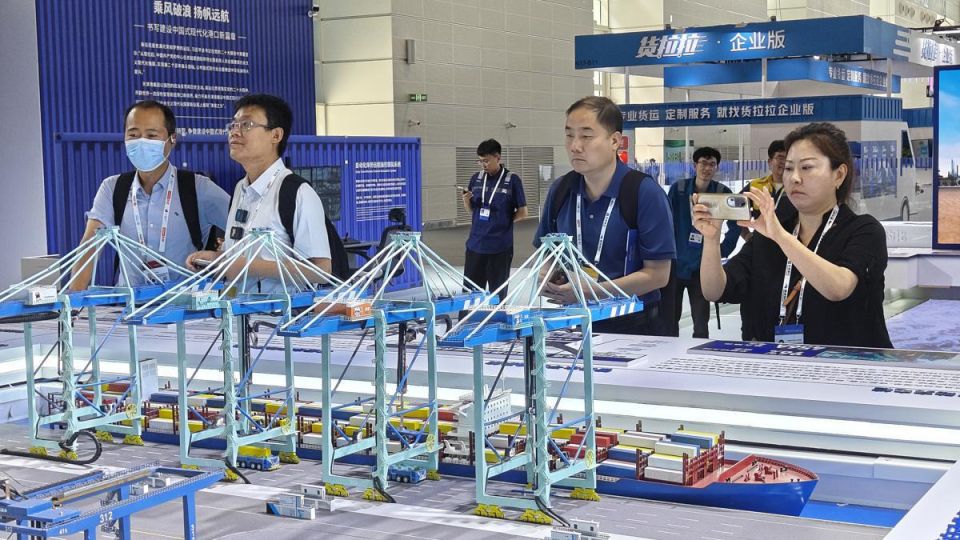TOKYO (XINHUA) – An earthquake with a preliminary magnitude of 4.9 yesterday struck off the northeastern Japanese prefecture of Fukushima, said the country’s weather agency.
The temblor occurred at around 12.12pm at a depth of 50 kilometres, measuring four on the Japanese seismic intensity scale of seven in Fukushima, the Japan Meteorological Agency (JMA) said, adding that there was no threat of a tsunami.
The epicentre was located at a latitude of 37.1 degrees north and a longitude of 141.2 degrees east.
Tremors were also felt in the prefectures of Miyagi, Ibaraki and Tochigi.
No new abnormalities were reported at the crippled Fukushima Daiichi Nuclear Power Plant and the Fukushima Daini Nuclear Power Plant following the quake, according to Tokyo Electric Power Company, the plants’ operator.
There were no immediate reports of injuries or major damage.
4.9-magnitude earthquake jolts Japan’s Fukushima
French court sentences man over Banksy stencil theft
AFP – A French court last Wednesday handed a man a two-year suspended jail sentence for using a bucket truck to steal a Banksy stencil from the back of a parking sign in Paris.
Mejdi R, a 38-year-old musician, in court had admitted that he used an angle grinder in September 2019 to remove part of the sign on which the secretive British artist had depicted a masked rat holding a box cutter.
But he claimed he was a friend of the artist, who had asked him to retrieve the artwork on the sign near the modern art Centre Pompidou museum in Paris.
He argued his “friend” wanted to prevent anybody else from making money off the street art of “no value”, and to “denounce the hypocrisy of a capitalist system that says which art had value and which does not”.
He said Banksy sent a “team” to help him steal it, that then slipped off back to England with the rat.
The prosecutor said Banksy had denied this through a spokesperson.
The stencil is still missing.
The court also sentenced Mejdi R to paying a EUR30,000 (USD32,000)-fine.
He was ordered to pay more than EUR6,500 in damages to the Centre Pompidou, which the court determined to be the stolen cultural asset’s custodian.
The defendant argued he had not stolen a “cultural asset” but taken part in “degrading a metal plate”, referring to sign for the Pompidou’s car park.
Banksy blitzed the French capital with murals in 2018, and appeared to authenticate the rat with the box cutter on his Instagram page that year.
The Pompidou theft came seven months after another Banksy work paying homage to the victims of the November 2015 attacks in Paris was stolen from outside the Bataclan, the concert venue where Islamic State group gunmen killed 90 people.
A French court in 2022 handed eight men punishments ranging from a six-month suspended sentence to two years behind bars for stealing that work and transporting it to Italy. Investigators found it hidden on a farm.
Dutch app supermarket boss eyes tech boom in online delivery

UTRECHT, Netherlands (AFP) – Advances in artificial intelligence are poised to drive a “massive” boom in online grocery deliveries, according to the head of Picnic, a Dutch app-only supermarket rapidly expanding into Germany and France.
Picnic has disrupted the Dutch supermarket landscape with its offer of free delivery in a time window of 20 minutes – made possible by squeezing efficiency out of huge amounts of data.
The firm already uses AI for a vast range of operations, explained CEO Michiel Muller, 59, at the firm’s 43,000-square-metre distribution hub in Utrecht, central Netherlands.
“For instance, predicting how many bananas we will sell in three weeks’ time. Or what happens when the weather is good or bad. Or doing our whole route planning,” he told AFP.
As technology improves and datasets grow, predictions will become more accurate, further reducing food waste and offering even more precise time slots for customers, he forecast.
“Don’t forget that supermarkets weren’t there 60 years ago. You only had smaller stores. So there’s always a movement around new technology and new ways of delivering goods.”
“The supermarket will remain. That’s for sure. Stores will remain. But the online part will grow massively,” he said.
Picnic has developed its own in-house software to fine-tune every element of the delivery process, from processing and packing stock at the warehouse to the famously complex “last mile” of dropping off the goods.
Delivery times are calculated with extraordinary precision, with reams of information crunched by 300 data analysts and 300 software engineers at Picnic’s headquarters.
“We know exactly how long it takes to walk around the vehicle and when it’s dark outside, we add six seconds to the delivery time,” said Muller.

Unlike a physical supermarket, every order comes through on the app, so the firm knows exactly what it needs to order, deliver, and how long that should take.
The firm estimates this results in seven times less food waste than at regular supermarkets.
“There’s not a single baguette that is ordered and not delivered,” said Gregoire Borgoltz, head of Picnic’s operations in France.
The firm’s drivers in the ubiquitous white Picnic vans receive a rating after every trip based on their driving, even assessing whether they have sped too fast around corners.
The huge investments required in bespoke software, plus the firm’s distribution hubs with 14 kilometres (nine miles) of conveyor belts, means profits have been hard to come by.
Sales have risen from EUR10 million in 2016 to EUR1.25 billion in 2023, with staff levels soaring from 100 employees to 17,000 over the same period.
But Muller said the firm suffered losses of “around EUR200 million” last year due to expanding in Germany – opening slots in Berlin, Hamburg and Hannover.
For the first time since its 2015 founding, it finally turned in a gross profit this year in its home market. “It took eight years to be profitable in the Netherlands,” he said.
Earlier this year, the firm raised EUR355 million from investors to fund its push into Germany and France, notably from the Bill & Melinda Gates foundation and German retail giant Edeka.

When it comes to profits, it’s again all down to technology, said Muller.
“Basically, the level of automation determines our level of profitability,” he said.
“Today, we have about 30 per cent automated in Holland. We will grow to 100 per cent in a couple of years’ time,” with Germany and France following soon behind.
So far, Picnic is mainly operating in the northern French city of Lille and the greater Paris suburbs. Central Paris is a “big opportunity but also has some of the worst traffic jams”, said Borgoltz.
“We will go to Paris but we have to find the right moment.”
Muller has ambitions to spread the company further. “Well, there are 183 countries in the world,” he jokes when asked where Picnic will expand to next.
But for the moment, he said the firm would consolidate its activities in Germany and France before looking further afield – not ruling out a push outside Europe.
Sha’Carri Richardson wins 100m at US trials to qualify for Paris Olympics
EUGENE, United States (AFP) – World 100 metres champion Sha’Carri Richardson earned a chance for Olympic redemption after winning the 100 at the US athletics trials on Saturday, booking her ticket to the Paris Games.
Three years after a positive marijuana test saw her kicked off the US team for the Tokyo Olympics, Richardson captured the women’s 100 final in 10.71sec with Melissa Jefferson second in 10.80 and Twanisha Terry third in 10.89.
Richardson was behind at the start but surged to the lead in the middle and crossed the finish line in this year’s world-best time with a wind of 0.8m/sec.
“I feel honoured,” Richardson said. “I feel every chapter I’ve been through in my life designed and prepared me for this moment.
“I cannot wait to go to Paris and represent.”
Three years ago, Richardson appeared set for the pandemic-delayed Tokyo Olympics after winning at the US trials in 10.86.
But dreams of Olympic gold were shattered when it was revealed she had tested positive for marijuana, resulting in a one-month suspension that banned her from Tokyo.
Plans to revive her career at the 2022 World Championships failed when she bombed out of the US trials.
Richardson, however, roared back into form in 2023 with a thrilling 100m triumph at the World Championships in Budapest, taking the crown in a championship record of 10.65sec.
This year, Richardson won her only prior 100 at May’s Prefontaine Classic in Eugene in 10.83.

Malaysia’s clawful costs
KUALA LUMPUR (ANN/THE STAR) – Malaysia’s Pet owners are howling over the soaring costs and stark discrepancies in veterinary care fees, spotlighting a growing concern as pet ownership rises.
The escalating expense of veterinary services has sparked outcry among pet lovers, questioning the reasons behind such dramatic disparities in pricing across clinics.
Unlike medical care for humans, which is governed by stringent regulations under the Private Healthcare Facilities and Services (Private Hospitals and other Private Healthcare Facilities) (Amendment) Order 2013, veterinary costs remain unchecked.
Critics argue that this lack of oversight has empowered some veterinarians, particularly those overseeing small animal practices, to levy what they consider exorbitant fees.
(Small animal practices are veterinary establishments that treat cats and dogs as well as other animals that are not wildlife or poultry and livestock.)
When contacted, a unit head from the Veterinary Services Department (DVS) said the department did not have the jurisdiction to control pricing as there was no relevant legislation.
“We can only control the pricing if laws have been passed. Without any legislation in place, we cannot interfere in the operations of private veterinary clinics.
“And if we were to regulate the clinics and their pricing, we have to do it through the Malaysian Veterinary Council (MVC), which is not prepared for the task,” he said.
Dr Saravanakumar S Pillai, a former DVS senior deputy director, said veterinary care pricing has yet to be legislated because the industry is still in its infancy.
“It is only in recent times that veterinary clinics had started mushrooming and veterinarians began treating all kinds of illnesses and diseases.
“Before that, it was just minor treatments such as spaying, castration and vaccination.”

Dr Saravanakumar, who is now with Humane Society International, said pets were now cherished by family members and owners would go all-out to get them treated, unlike in the past.
He added that the demand for sick pets to be kept alive for as long as possible had also spurred veterinary practices to get high-end diagnostic equipment.
“Veterinarians are now treating ailments that they never had to treat before such as cancer, diabetes, kidney and liver problems, heart disease and many other illnesses,” he said, adding that veterinarians were also carrying out spinal and various other orthopaedic surgeries.
Dr Saravanakumar said veterinary practices also need to make money to cover staff salaries, high rentals, and fat utility bills.
To make matters worse, fresh veterinary graduates are in high demand as the DVS, veterinary clinics, pet food industry, pet vaccine manufacturers and big-scale farms are rushing to hire them as soon as they finish their studies.“So, unless veterinary clinics pay them competitive salaries, they won’t be able to hire them,” he added.
Another reason for the high bills is the decline in the ringgit’s value, given that drugs for animals have to be bought from overseas.
“Many of the drugs that we need to treat animals are not available nor registered here. The generic variations are also not available in Malaysia,” said a senior veterinarian who declined to be named.
“So, we are left with no choice but to order them from Singapore,” he said.
He explained that besides paying for the drugs in Singapore dollars, transportation costs can come up to SGD150 (MYR522) for each trip.
He added that foreign veterinary drug manufacturing companies were not keen to register their drugs here due to the conditions set by the National Pharmaceutical Regulatory Agency (NPRA).
“They feel it is not worth the trouble adhering to the NPRA conditions, such as having labels in Bahasa Malaysia as well as inserting a security hologram, because our market is too small for them,” he said.
Malaysian Small Animal Veterinary Association (MSAVA) president Dr Tan Check Nam said the main reason for the disparity of pricing between clinics was the unequal standard of veterinary practices.
“Some clinics are well-equipped and the clinicians there go all-out to diagnose, while other clinics do not have much equipment and are one-man shows where medicines may be dispensed with little or no examination.”
MSAVA executive council member and veteran veterinarian Datuk Dr Vellayan Subramaniam said his organisation had drawn up a pricing guideline to be agreed on by all its members some years ago.
“We are relooking and adjusting the pricing guidelines for our members currently,” he added.
However, he said it would still not help much as not all small animal practice veterinarians are MSAVA members and they could not be expected to follow the pricing guide.
China boosts worldwide AI engagement
TIANJIN, BEIJING (ANN/CHINA DAILY) – China President Xi Jinping emphasised China’s commitment to collaborating with other nations to foster the responsible advancement of artificial intelligence (AI) during his address at the World Intelligence Expo 2024 in Tianjin.
Highlighting AI as a pivotal force in the ongoing global technological revolution, Xi underscored its profound impact on economies, societies, and human civilisation.
China, he stated, prioritises AI development and champions the integration of internet technologies, big data, and AI with the real economy.
Xi further outlined China’s efforts to bolster its AI capabilities, aiming to accelerate high-quality development and cultivate new productive forces.
China hopes to work with all other countries to seize the opportunities brought by digitalisation, networking and smart technologies, and deepen international cooperation on AI development and governance, Xi said.
Chen Min’er, secretary of the Communist Party of China Tianjin Municipal Committee, attended the opening ceremony of the expo and read out the congratulatory message. He emphasised the importance of promoting the development of AI industries, saying that Tianjin will make more efforts to accelerate the integration of AI with other emerging fields and promote the development of digital industrialisation and industrial digitalisation.
Liu Liehong, head of the National Data Administration, said AI has become a new growth engine for Tianjin to accelerate the formation of new quality productive forces, as the revenue of the city’s AI-related industries exceeded CNY300 billion (USD41.32 billion) in 2023.
“AI has become a strategic emerging industry leading the science and technology revolution and industrial transformation with (positive) spillover effects that drive development, playing a pivotal role in the advancement of the smart industry,” he said. “We need to accelerate the construction of a nationwide integrated computing power network.”

Shan Zhongde, vice-minister of industry and information technology, said China has made considerable progress in promoting AI development, as the country has cultivated 421 national-level intelligent manufacturing demonstration plants, over 10,000 provincial-level digital workshops and smart factories, and over 4,500 AI enterprises.
In the next step, he said the country will intensify efforts to make breakthroughs in core technologies such as intelligent chips and algorithm frameworks, support the construction of high-quality data systems in key industrial sectors, accelerate R&D and innovation in industrial large models and promote the integration of AI with manufacturing.
More efforts will also be made to support enterprises that use special and sophisticated technologies to produce novel and unique products, build globally competitive industrial ecosystems, and construct advanced manufacturing clusters with international competitiveness, Shan added.
Zhou Hongyi, founder of Chinese cybersecurity company 360 Security Group, highlighted the necessity of fostering new quality productive forces and pursuing innovation-driven development, saying the key is to embrace AI technologies, particularly large models.
“With the emergence of large models, AI will lead human society into the era of intelligence, bringing profound impacts on our way of life and production,” he said. “As a crucial supporting technology for new quality productive forces, AI technologies, notably large models, will usher in a new round of industrial revolution.”
Zhou said he hopes his company could make use of its technical capabilities in specialised large models to help Tianjin build its large model industry ecosystem.
All Blacks could hit England with power rugby, predicts Chiefs boss

WELLINGTON (AFP) – The All Blacks could unleash forward-based power rugby on England in next month’s Test series, the Waikato Chiefs coach has predicted after the Auckland Blues thumped his team in the Super Rugby final with a similar style of play.
Forward power and reducing risk have been the hallmark of the Blues during the Super Rugby season, culminating in Saturday’s 41-10 dismantling of the Chiefs in a one-sided final at Eden Park.
New Zealand’s Super Rugby teams traditionally show a willingness to play expansive rugby, a style which translates into an attack-minded approach from the All Blacks.
However, the Blues have relied on close driving play this year and the use of one-off runners to pound opponents into submission.
Chiefs coach Clayton McMillan, whose team were forced to make more than 250 tackles in the final, said the Blues’ dominance may force a tactical rethink from new All Blacks coach Scott Robertson.
New Zealand will name a 32-man squad on Monday for the two-Test home series against England, in Dunedin on July 6 and at Auckland’s Eden Park the following week.
“It’s going to be interesting to see how the All Blacks go, because this (playing style) is kind of something new for New Zealand, isn’t it?” McMillan told reporters.
“We haven’t really seen a team do that. It’s probably going a little bit away from the DNA of All Black rugby.
South Africa won the Rugby World Cup last year by also relying heavily on their forward pack.
“We know that the South Africans and some of the teams up north are a little bit more direct,” McMillan added.
“I guess the key will be understanding whether we have the athletes to play that at international level.”
Blues coach Vern Cotter admitted it took time to embed a conservative style at a Blues team full of players who had built reputations on expansive play.
The process began in the pre-season and the players slowly brought into quelling their habits.
“As you can imagine, it probably wasn’t assimilated straight away, and that’s just natural,” Cotter said.
“The guys were used to playing one way and we just changed that.
“It was just getting the All Blacks players to understand as they filtered back into the team. They’ve picked it up and run with it.”
Cotter, who had previously coached the national Scotland and Fiji teams, became the fifth man to lift a title in his first season as a Super Rugby head coach.
He joins an illustrious all-New Zealand list comprising Graham Henry (Blues, 1996), Robbie Deans (Canterbury Crusaders, 2000), Dave Rennie (Chiefs, 2012) and Scott Robertson (Crusaders, 2017).
Booms and beaches: Singapore’s oil spill update
SINGAPORE (CNA) – A week following a major oil spill of 400 tonnes in Singapore’s waters, efforts continue to clean up both at sea and on land. Off Sentosa, containment booms have required repair and reinforcement due to turbulent weather that caused several to snap.
One clean-up company brought in additional manpower from abroad to beef up its operations. Plus, the toxic oil-soaked sand collected from the affected beaches has to be carefully processed at a treatment plant.
The spillage occurred on the afternoon of June 14 after a Netherlands-flagged dredger hit a stationary bunker vessel, causing oil from the latter’s damaged cargo tank to spill into the water.
That evening, containment booms were deployed by T&T Salvage Asia to block off the entrances at the lagoons of Sentosa’s beaches.
Those red-coloured rigid booms which were first set up are easier and faster to deploy, the firm’s managing director Captain Anuj Sahai explained on Friday (Jun 21). However, they are not as strong and effective as the more heavy-duty booms which have since been in place.
The source observed a team from T&T Salvage Asia at work on Friday, laying a 200m-long black-coloured containment boom along the external coastline of Siloso Beach.
“It was bad weather, very strong thundery showers early in the morning. So one or two booms snapped, but it was immediately taken care of,” Capt Anuj said, noting that the larger boom was being deployed only as a precaution.
Some extent of damage such as wear-and-tear is natural and already factored in as considerations when deploying booms, he explained.

The new boom is made up of 3m-long segments that have to be completely inflated with air so it can float on the water. It is heavy and requires more manpower and coordination to deploy, said Capt Anuj.
“These are bigger booms. They are much more sturdy and stronger. They will last much longer. But it also takes a little bit more time to deploy as well,” he added.
Each 3m segment weighs about 100 kg when completely inflated. It is launched off a boat and towed into position by a smaller raft that can move faster and get closer to the shore.
T&T Salvage Asia has deployed about 85 people for its clean-up operation. About 20 of them were brought in from abroad “because this was a massive spill and there were so many locations to look at”, said Capt Anuj.
The crew members are from Singapore, the Philippines, India, Ecuador and Argentina, he said. Three teams work around the clock.
“Everybody has about 10 to 15 years of solid experience. They know exactly what needs to be done. They don’t need to be taught,” said Capt Anuj, who has been in the oil spill response sector for about 20 years.
He added that physical fitness is a crucial aspect of the job, and that the risk of injury is very real.
In Singapore where the current and tides are strong, it can be difficult to maintain the boat’s position during deployment operations, he noted.
Capt Anuj’s firm is in charge of the stretch between Labrador Park and Sentosa Cove, along with islands further south like St John’s Island. It has laid out about 2.5km of booms so far.
“The effect of wind and weather is quite strong over here, especially when you’re close to Sentosa. So we have to take a lot of precautions for that,” he said.
There are different considerations for each location. At Sentosa, for instance, the venue of the Wings of Time show was a factor.
“It has a lot of protruding structures (and) steel structures, so they might puncture these kinds of booms. So then we immediately have to go and then supplement with reinforcements,” explained Capt Anuj.
Japan’s high protein food-frenzy
ANN/THE YOMIURI SHIMBUN – With the burgeoning interest in muscle training, a wave of high-protein “muscle-building foods” has swept across Japan, catering to those seeking both athletic enjoyment and health-conscious weight management.
Yano Shoten, a well-established fish paste store in Takamatsu, has entered this market with their unique offering: “Kinniku Ramen” (muscle ramen).
These frozen noodles, a collaboration with the popular Wakamatsu ramen restaurant in the city, stand out for their inclusion of whole chikuwa – a tube-shaped fish cake – as a key ingredient.
In 2021, Yano Shoten’s President Koji Yano, aged 60, collaborated with a nutritionist to create “Muscle Chikuwa.” This innovative product is crafted from Alaska pollock fish paste infused with protein derived from nuts.
Each chikuwa weighs approximately 65 grams and boasts 16 grams of protein.
According to the Dietary Reference Intakes set by Japan’s Ministry of Health, Labor, and Welfare, women are advised to consume 50 grams of protein daily, while men should aim for 60-65 grams.
A single serving of Muscle Chikuwa fulfils between one-quarter to one-third of these recommended daily protein requirements.
Following its release, the product garnered significant attention, prompting a flood of inquiries. To date, Yano Shoten has sold over 10,000 units of Muscle Chikuwa.
People who work out hard tend to give up eating ramen noodles, especially the type served in thick and rich broth.
Yano’s 57-year-old wife Chikako thought that by “eating ramen with Muscle Chikuwa, people could take in more protein to achieve a better nutritional balance and as a result feel less guilty” about eating ramen. After hearing this idea, Yano started to develop the product.
Yano asked the owner of Wakamatsu to work with him to commercialise Muscle Ramen. The owner agreed without hesitation, and the product went on sale in April 2022.
As chikuwa absorbs ramen broth to have a deeper flavour, it is a good match for ramen. In addition, boiling chikuwa with ramen noodles helps the noodles absorb the fish-based umami of the chikuwa.
Yano and his wife guarantee the nutritional value of the ramen, saying that even those on a diet can fully enjoy eating it.
The noodles come in three flavours: a regular flavour with broth made from iriko dried fish, a rich flavour, and a spicy flavour. The price for each is JPY1,200, including tax. They are sold at the official online store.

MORE PRODUCTS FOR ATHLETES, DIETERS
There are also other products developed for athletes and dieters.
Prop, a cake shop in Harima, Hyogo Prefecture, has been selling “Protein Castilla,” a type of sponge cake usually called “castella,” since 2022. Each piece contains eight grams of protein, including supplemental protein, and is made to be relatively low in fat. The texture is similar to regular castella sponge cakes. A set of six cakes sells for JPY2,400, including tax.
The product was developed for martial arts athletes, who have strict diet restrictions, by the store’s executive director Shojiro Watanabe, 46, who used to go to a kickboxing gym, with the hope that they could enjoy a tasty snack even when they need to lose weight.
The store has received orders for the product from athletes in various sports. They in turn sent favourable responses to the store, saying that it is a relief to eat something sweet even when they are going through hard times, the shop says.
Smoothie Cafe Soleil in Soja, Okayama Prefecture, offers “Protein Pancakes,” priced at JPY840 per plate including tax.
The pancakes are made by baking a batter mixed with supplemental protein and topped with low-calorie vegetable-based cream, strawberries, nuts, and other ingredients. They contain 20 grams of protein and are made to have fewer calories than regular pancakes.
The cafe’s owner, Umi Tsukishiro, 44, also works as a personal trainer for diet improvement. She says that the pancakes are aimed at women who are interested in dieting.
“Some young women diet in unhelpful ways, like excessively restricting their food intake. I want to help them build a healthy body with nutritional support while eating delicious food,” Tsukishiro said.
MORE PEOPLE IN TRAINING
Muscle training became popular with COVID-19-related restrictions and is still going strong.
According to a survey by the Sasakawa Sports Foundation, the percentage of people aged 20 or older who do muscle training at least once a week has been on a rising trend since 2000, increasing from 4.5 per cent in that year to 13.4 per cent in 2020 at the height of the pandemic. It was 12 per cent in 2022.
In line with the boom, the market for protein-enriched foods has expanded rapidly. According to research firm Fuji Keizai Co, the domestic market is estimated to grow from about JPY62.3 billion in 2013 to JPY258 billion in 2023, more than quadrupling.


